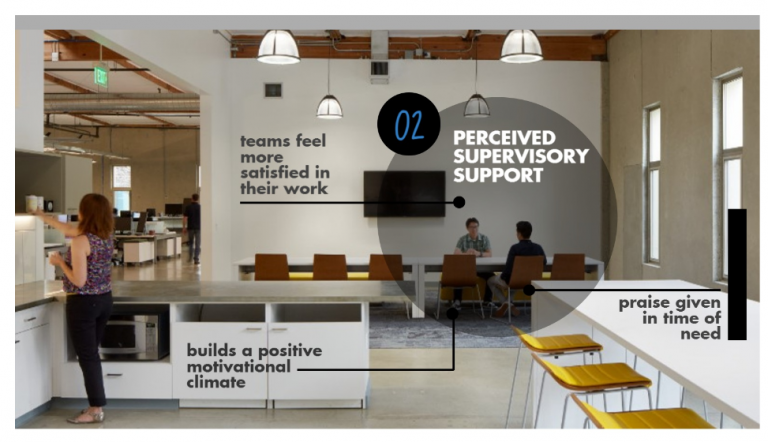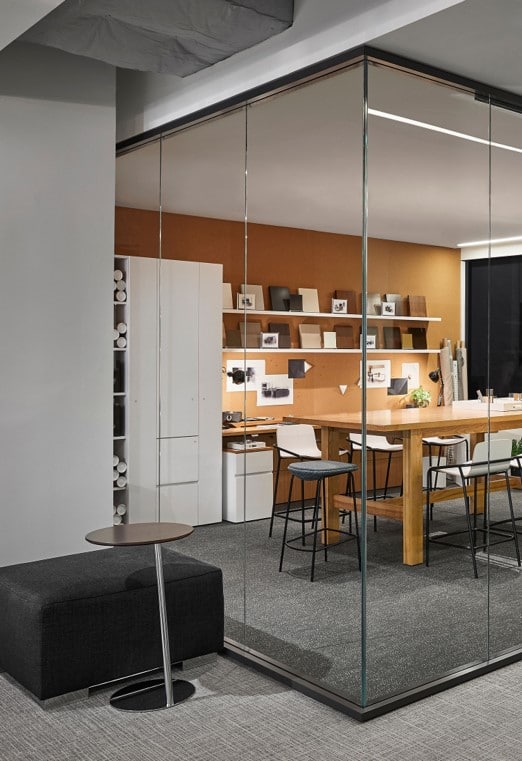These days work is all about team productivity.

Instead of being able to measure productivity by physical output, managers are faced with the challenge of measuring the productivity of knowledge work.
We’re no longer a commodity based society. Our most important assets are our human capital. The true worth is hard to quantify because humans have potential that develops over time.
We also now realize that we can achieve a lot more by working together. This is what has fueled the move toward open plan spaces that support collaboration. The trouble is that it has also made neatly controlling work within specific spaces obsolete. The days of ‘them’ and ‘us’ management and employee relations are over. It’s all about teams working together in a fluid exchange of ideas and knowledge to achieve a common goal. Teams are dynamic and change according to the project and the team member’s specialties.
Allsteel recently produced a very interesting infographic which we’ve featured here explaining the 6 key factors of productivity in this new knowledge work era. They based their conclusions on research conducted by Advanced Workplace Associates (AWA) and The Center for Evidence Based Management (CEBMa)
Factor 1: Social Cohesion: “Team members help each other”
Factor 2: Perceived Supervisory Support: “My supervisor goes out of their way to help me perform my job”
Factor 3: Information sharing: “Team members share their expertise”
Factor 4: Vision and goal clarity: “Goals are prioritized clearly”
Factor 5: External communication: “We look beyond ourselves to the external environment for ideas and solutions”
Factor 6: Trust “We don’t withhold information from each other”
You’ll find the full infographic and supporting information here.
For teams to operate together productively and effectively, it’s clear that there has to an atmosphere of collaboration from the most senior management right down to the most junior employee. In many ways, work dynamics resemble family dynamics where all members of the unit develop both individually as well as a group. Common goals are just the beginning. Mutual respect, appreciation and support are equally important.
Creating a work environment that fully supports team work doesn’t just happen. It takes careful planning. Fortunately, if you need advice about this, we’re here for you and would love to be a part of the process. Feel free to contact us anytime.










